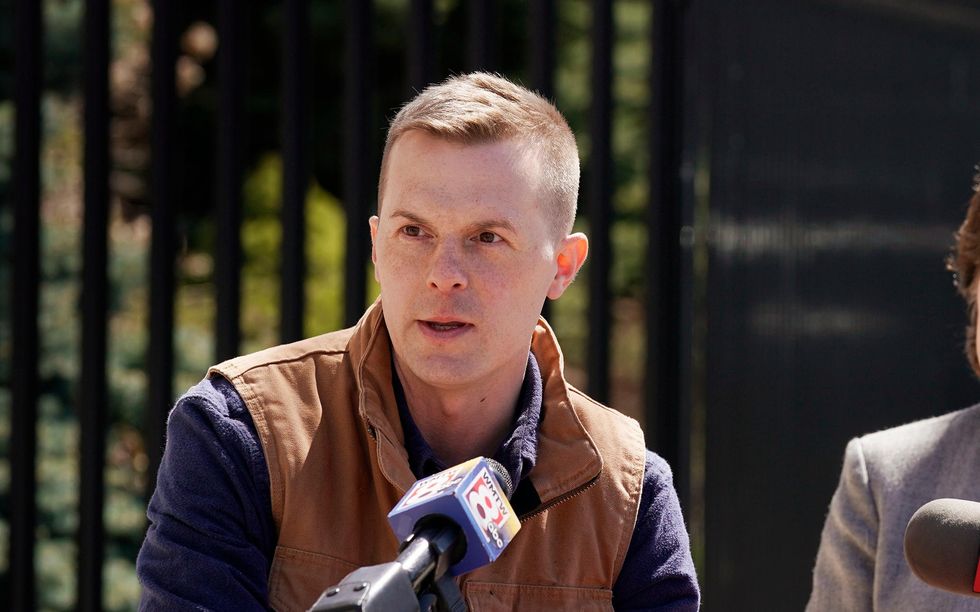
House Republicans and a single Democrat—Rep. Jared Golden of Maine—passed legislation Friday that would require the federal government to lease a certain percentage of public lands and waters for fossil fuel extraction for every non-emergency drawdown of the U.S. Strategic Petroleum Reserve, a trade-off that climate advocates slammed as a huge gift to Big Oil.
“Fossil fuel companies are already swimming in record profits, but House Republicans are using one of their first legislative opportunities to auction off our public lands for more drilling,” Martin Hayden, Earthjustice vice president of policy and legislation, said of the Strategic Production Response Act (H.R. 21), a bill led by Rep. Cathy McMorris Rodgers (R-Wash.).
Rodgers, the chair of the House Energy and Commerce Committee, was the
top recipient of oil and gas PAC money in the House Republican caucus during the last election cycle.
“Ramping down fossil fuel extraction and transitioning to clean energy are our best opportunity to protect ourselves from the worst impacts of climate change, insulate families from volatile energy prices, and ensure that we reach our climate goals,” Hayden added. “At a time when we’re seeing the impacts of climate change every day, this bill would lock in decades of fossil fuel drilling that we simply cannot afford.”
Republicans have accused Biden of abusing his authority to tap the nation’s strategic reserve, a resource he drew on in a
significant way last year in an effort to tamp down soaring gas prices by quickly increasing supply.
The White House has countered that it was operating well within its power to respond to major supply disruptions and warned the GOP bill would result in “more oil supply shortages in times of crisis and higher gasoline prices for Americans.”
“Today, the SPR remains the largest strategic petroleum reserve in the world. And with our plans to refill it at… lower prices than what we sold at, the use of the SPR not only saved Americans money, but these releases will end up delivering a return for taxpayers,” U.S. Energy Secretary Jennifer Granholm said during a
press briefing earlier this week. “So I’ll be very clear: If Congress were to pass H.R. 21, the president would veto it.”
“This bill advances a public land giveaway that could lock in at least a century of oil drilling in response to an SPR drawdown that is truly a drop in the bucket.”
Explaining his lonely yes vote on the House GOP’s legislation, Golden said in a
statement that “it is in the best interest of hard-working Americans, who are facing rising prices at the pump, to require a comprehensive plan from any administration in power to replace our stockpile as they dip into it.”
But climate groups warn the specific plan required under the bill—which passed hours after Chevron
reported record-shattering annual profits for 2022—would approve a massive expansion of fossil fuel drilling at a time when climate scientists say such extraction must be urgently phased out.
“Enactment of this bill would have dire implications for federal public lands and waters,” a coalition of nearly 40 environmental groups wrote in a
letter to members of Congress earlier this week. “As written, the bill permits the leasing plan to include as much as 10% of the federal land and water estate—an unconscionable amount—when SPR drawdowns exceed 10% of reserves.”
“The federal government presides over roughly 640 million acres onshore and over 2.5 billion acres in the Outer Continental shelf. Ten percent of that is 314 million acres—almost twice the size of Texas and six times the combined size of all U.S. national parks,” the letter continued. “In other words, this bill advances a public land giveaway that could lock in at least a century of oil drilling in response to an SPR drawdown that is truly a drop in the bucket.”
After the groups sent their letter, the House GOP approved an amendment offered by Rep. Lauren Boebert (R-Colo.) that would authorize a leasing plan that could include up to 15% of federal lands and waters.
House Republicans rejected a number of amendments offered by Democrats, including one from Rep. Raúl Grijalva (D-Ariz.) that would have made national parks, national wildlife refuges, and other public lands off-limits for drilling.
“Under this bill, if the president needed to act again to keep prices low, he’d first have to pay off Big Oil by opening up our public lands,” Grijalva said in a floor speech on Thursday. “This bill does not protect the American people, and it certainly does not protect our climate or environment.”
Related Articles Around the Web




